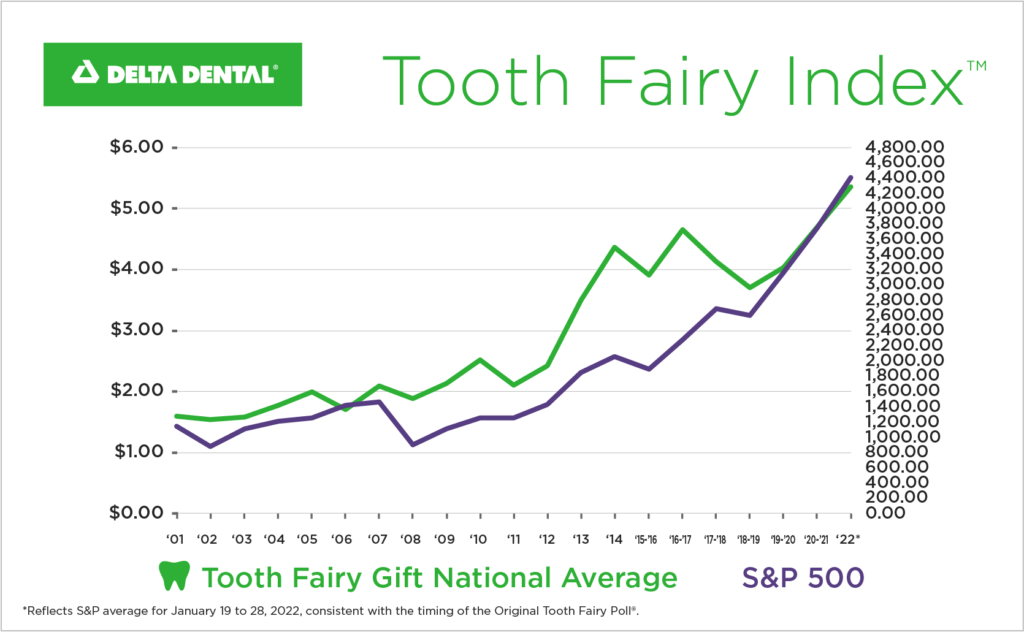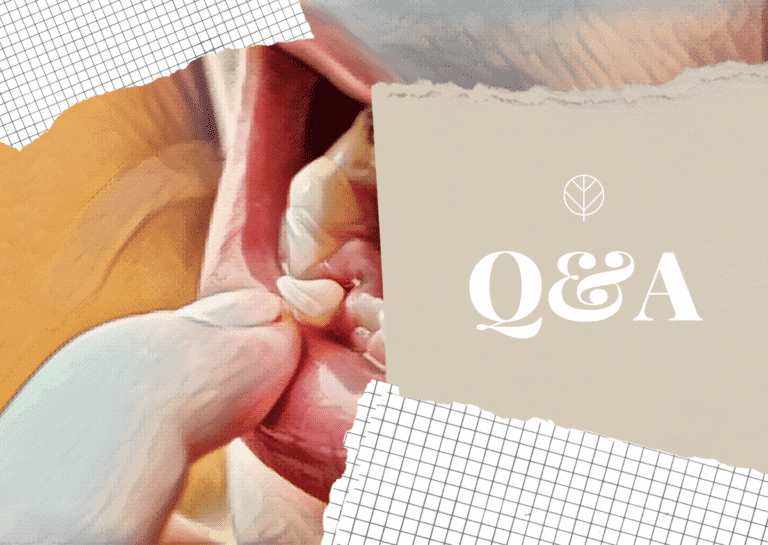Q: Hi, my name is Alex from London. I’ve been a Parents Club member for a few months now, and it’s been great listening to the episodes while I’m out walking. My daughter is 5, and she’s terrified about losing her baby teeth. My question is how I can help make this less scary for her. Thanks so much.
A: It’s an entirely normal part of childhood development for kids to lose their baby teeth. In one study of 1,300 parents, researchers found that around 80% reported positive feelings about losing teeth, while only 20% experienced negative emotions. However, many children are scared because they may think the teeth will be gone forever, the process may be painful, or they become self-conscious about missing teeth. For the child, it’s perfectly natural to be anxious about the bleeding in their mouth or think that this is a serious dental concern. As a parent, there are many steps you can take to ease the anxiety or fear of losing teeth.
Table of contents
The researchers found that previous dental visits to the dentist affected the children’s feelings. If previous visits were cavity-related, there were fewer positive emotions when it came time to lose their first tooth. This increases the chances of suffering from negative emotions. Children who have loose teeth for a longer time also tend to have more positive feelings. The longer the preparation time, the greater the sense of pride when the tooth does fall out. Most of the time, it’s not necessary to visit your dentist after the first baby tooth falls out.
Explain the science
One way to ease the fear of losing baby teeth is to explain the science behind growing up. Every child will grow and lose teeth on a different timeline. The scientific term for baby teeth is deciduous teeth, and young children have 20 baby teeth. Most children start to lose teeth between 5-7 years old, and they will eventually lose all of their baby teeth in their mouth by the age of 12.
We have two sets of teeth because the baby teeth act as placeholders in the jaw for permanent teeth. When the permanent adult teeth are ready to sprout (or erupt), the root of the baby will dissolve, causing the baby tooth to become loose. The gum tissue will hold the wiggly tooth until it falls out. It’s not uncommon for children to suffer from minor discomfort, but understanding that it is not a serious dental issue can be reassuring. Placing an ice pack on the gums can help with the discomfort. When children understand normal childhood development and the reason behind losing baby teeth, it helps calm their concerns.
Make it fun
Having positive conversations about tooth loss can help children better understand the process. In addition, there are many children’s books that you can read with your kids, which can be both comforting and informative.
One book is Bear’s Loose Tooth, which tells the story of a bear who discovers a loose tooth. While he was initially worried, the other animals in the forest helped him wiggle the tooth back and forth. Once the tooth comes out, the story ends with a celebration. The bear smiles and is excited to show everyone his lost tooth. The story ends with the Tooth Fairy giving a reward for the tooth.
Recommended children’s books
- The Night Before the Tooth Fairy
- Bear’s Loose Tooth
- How to Catch the Tooth Fairy
- What Does the Tooth Fairy Do With Our Teeth?
- The Tooth Fairy (Peppa Pig)
There are also many free resources and websites online, including YouTube videos and tooth fairy letter templates. In particular, the video Meet Tooth Fairy with Peppa Pig tells the story of Peppa’s tooth falling out. Peppa’s mom explains that the tooth will come back and that tonight, the Tooth Fairy will come to visit and leave a shiny coin in exchange for the tooth.
Be a Tooth Fairy
The visit from the Tooth Fairy dates back to medieval European traditions, and it’s well-known in the United States. As a result, many children get excited about a magical visit from the Tooth Fairy. So when you celebrate the lost tooth as a milestone, your child may share in the excitement.

According to a survey by Delta Dental, gifts from tooth fairy have been increasing over the past 20 years. The average cash gift was $5.36 for a lost tooth in the United States. 31% of parents said that the child’s age affected the value of the lost tooth. Money is not the only reward that the Tooth Fairy leaves behind.
There are many printable template letters from the Tooth Fairy on Pinterest. They can serve as inspiration to make a do-it-yourself letter at home. Make sure to include personal details such as their age, number of lost teeth, and encouragement for good dental hygiene. Using positive reinforcement is a great way to encourage healthy habits.
Examples of letters:
- “Your beautiful tooth has become unstuck! I’ll keep it forever.”
- “Wow, what a tooth! I couldn’t believe it when I saw it. You’ve done such a wonderful job taking care of your teeth.”
- “I’m delighted that you finally lost that first tooth. I am so excited to come to pick it up. Don’t forget to floss each night when you brush your teeth.”
- “You’ve lost a tooth; how divine. What once was yours now is mine. Thanks for sharing; it’s very kind.”
You can also take your child out for ice cream or a movie to celebrate. This could also be a chance to get a new game or small toy.
When to get help
It’s normal for kids to play with their loose teeth, and moving them with their tongue can even help the roots let go of the tooth. However, let your child know not to pull hard on the tooth. It can cause pain and bleeding if the tooth is pulled before it’s ready to fall out, increasing the risk of infection. Letting the tooth fall out on its own is the best way to avoid tears.
A baby tooth will fall out and be replaced soon with an adult tooth most of the time. However, there are times when it may be necessary to seek medical care from your pediatric dentist. For example, sometimes permanent teeth will emerge as a second row before the baby tooth falls out. A baby tooth can also be prematurely knocked out from an accident or injury. You should call your dentist if either of these reasons are related to the lost baby tooth.

